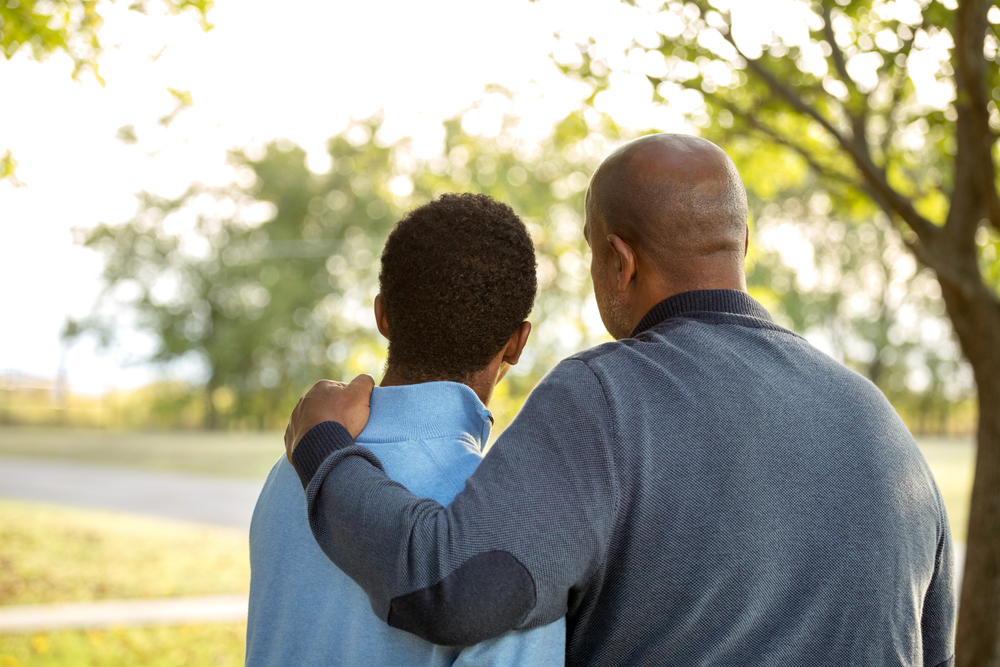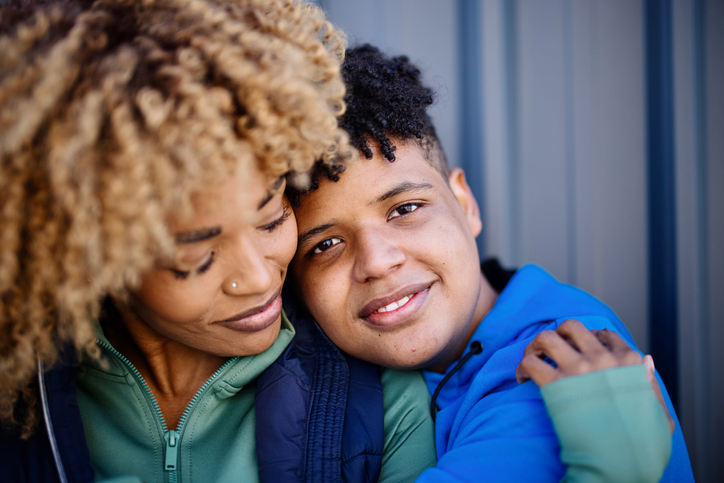Parents, you have a tough job, and nobody’s expecting you to be perfect. However, there are some things you can say to your kids that will make a world of difference in their emotional development and mental well-being. We’ve got the inside scoop on 16 phrases that every parent should use with their children. These aren’t just empty platitudes — they’re powerful tools for building resilience, self-esteem, and healthy relationships.
1. “I’m proud of you for trying, even if it didn’t work out.”

Failure is a tough pill to swallow, especially for kids. That being said, it’s also an essential part of learning and growth, according to Fortune. When your child takes a risk and falls short, don’t focus on the outcome — praise them for their effort and courage. Remind them that success isn’t about being perfect, but about showing up and giving it their best shot. They’ll learn that it’s okay to stumble, as long as they keep getting back up.
2. “What do you think you could do differently next time?”

When your child makes a mistake or faces a setback, resist the urge to jump in with all the answers. Instead, ask them to reflect on what they could do differently in the future. This helps them develop problem-solving skills and take ownership of their choices. Don’t criticize or shame them for their missteps — focus on helping them learn and grow from the experience. They’ll gain confidence in their ability to navigate life’s challenges.
3. “I’m here for you, no matter what.”

Kids need to know that they have a safe haven in their parents, even when the world feels scary or overwhelming. Make sure your child knows that you’re always in their corner, ready to listen and support them through the ups and downs of life. Don’t judge or minimize their feelings — validate their emotions and let them know it’s okay to be vulnerable with you. They’ll learn to trust and rely on your unconditional love.
4. “It’s okay to feel [insert emotion here].”

Emotional intelligence is a key skill for kids to develop, but it doesn’t come naturally to everyone. When your child is experiencing a big emotion, whether it’s anger, sadness, or fear, don’t try to talk them out of it or distract them from it. Instead, help them name and validate their feelings. Let them know that all emotions are normal and okay, and that they’ll pass in time. They’ll learn to regulate their emotions in healthy ways.
5. “What do you think is the kind thing to do?”

Empathy and kindness are essential qualities for kids to cultivate, but they don’t always come easily. When your child is faced with a social dilemma or conflict, ask them to consider what the kind and compassionate choice would be. Encourage them to put themselves in others’ shoes and think about how their actions might impact those around them. They’ll learn to prioritize empathy and build stronger relationships with their peers.
6. “Let’s take a break and come back to this later.”

When emotions are running high and tempers are flaring, it’s easy for conversations to escalate into arguments. In these moments, it’s okay to hit the pause button and take a breather. Let your child know that you both need some time to cool off and collect your thoughts before revisiting the issue. This models healthy conflict resolution and helps prevent hurtful words from being spoken in the heat of the moment.
7. “I don’t know, but let’s find out together.”

Kids are naturally curious, and they’ll inevitably ask questions that stump even the most knowledgeable parents. When you don’t have the answer, resist the urge to make something up or brush off their inquiry. Instead, embrace the opportunity to learn alongside your child. Show them how to find reliable information and think critically about what they discover. They’ll develop a love of learning and a sense of empowerment in their own education.
8. “What do you like about yourself?”

Self-esteem is a crucial foundation for mental health and well-being, but it’s not something that can be handed to kids on a silver platter. Encourage your child to reflect on their own strengths and positive qualities, and to speak about themselves with kindness and pride. Don’t just focus on their achievements or appearance — celebrate their character, creativity, and unique perspective, according to Today’s Parent. They’ll learn to value themselves from the inside out.
9. “I’m sorry, I made a mistake.”

Parents are human too, and we all make mistakes from time to time. When you mess up, don’t try to sweep it under the rug or rationalize your behavior. Own up to your error and apologize sincerely to your child. Show them that it’s okay to be imperfect, and that taking responsibility for your actions is a sign of strength and maturity. They’ll learn that mistakes are opportunities for growth and healing.
10. “I’m listening, go on.”

In our fast-paced world, it’s easy to get distracted or rush through conversations with our kids, but active listening is a powerful tool for building trust and connection. When your child is sharing something with you, give them your full attention and resist the urge to interject or offer advice right away. Use nonverbal cues like eye contact and nodding to show that you’re engaged and interested. They’ll feel heard and valued, and be more likely to open up to you in the future.
11. “Thank you for helping out.”

It’s easy to take our kids’ contributions for granted, especially when it comes to household chores or family responsibilities. But expressing gratitude for their efforts can go a long way in building their sense of purpose and self-worth. When your child lends a helping hand, whether it’s setting the table or walking the dog, make sure to acknowledge and appreciate their hard work. They’ll feel valued and motivated to keep contributing to the family.
12. “I trust you to make good decisions.”

As kids grow older, they need opportunities to exercise their autonomy and make choices for themselves. While it’s important to set boundaries and provide guidance, it’s also crucial to give them room to navigate some decisions on their own. Let your child know that you have faith in their judgment and ability to make responsible choices. They’ll gain confidence in their own decision-making skills and feel more invested in the outcomes.
13. “What do you need from me right now?”

Sometimes, kids don’t need advice or solutions — they just need a listening ear or a shoulder to cry on. When your child is struggling, resist the urge to jump in with your own agenda or expectations. Instead, ask them what kind of support they need from you in that moment. Maybe they need a hug, or some space to process their feelings, or help brainstorming solutions. Follow their lead and let them know you’re there to support them in whatever way they need.
14. “I love you, even when I’m upset with you.”

Discipline and disagreements are inevitable parts of parenting, but they can sometimes leave kids feeling like they’ve lost their parents’ love or approval. Make sure your child knows that your love for them is unconditional and unwavering, even when you’re frustrated or disappointed with their behavior. Separate the action from the person, and remind them that they are always worthy of love and respect, no matter what.
15. “Let’s focus on what you can control.”

Life is full of challenges and setbacks that are beyond our control, and it’s easy for kids to feel helpless or overwhelmed in the face of adversity. Help your child focus on the things they can control, like their own thoughts, feelings, and actions. Encourage them to identify small, manageable steps they can take to move forward, and celebrate their progress along the way. They’ll learn to be proactive and resilient in the face of life’s curveballs.
16. “I’m proud of the person you are.”

At the end of the day, our kids need to know that we see and value them for who they are, not just what they do. Make sure to express your love and pride in your child’s character, integrity, and unique qualities. Celebrate their kindness, creativity, curiosity, and empathy, and let them know that these traits are just as important as their grades or achievements. They’ll learn to value themselves as whole, multifaceted individuals, and to strive for personal growth and fulfillment.








